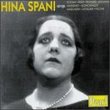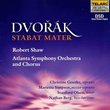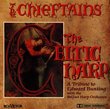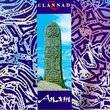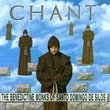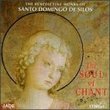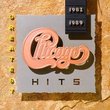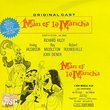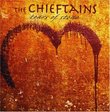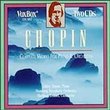| All Artists: Franz Liszt, Roberto Szidon Title: Liszt: The 19 Hungarian Rhapsodies Members Wishing: 0 Total Copies: 0 Label: Deutsche Grammophon Release Date: 4/15/1997 Genre: Classical Style: Number of Discs: 2 SwapaCD Credits: 2 UPCs: 028945303420, 002894530342 |
Search - Franz Liszt, Roberto Szidon :: Liszt: The 19 Hungarian Rhapsodies
CD DetailsSimilar CDs
Similarly Requested CDs
|
CD ReviewsRobotic? Yi HW | a cosmopolitan bound by the ROK nationality | 11/19/2005 (5 out of 5 stars) "Let me tell you something. I personally respect everyone's taste. But in this case I have an objection to the point raised by a couple of reviewers. What is the robotic playing? Szidon's playing is not robotic at all although his approach may be controversial. Yes. His approach is quiet different from other pianists. And I admit that it can make listeners love or hate this album. But it does not prove that his playing is robotic or mechanical. Actually his approach is highly creative and individual. He has a strong personality whether you like it or not. At least, Szidon can be compared with Cziffra on strong personality essential to express so-called 'Gypsy Spirit'. He has a big mechanism, power, alertness to be a good Lisztean, too. Indeed the term 'Robotic' may go to Campanella and Yundi Li. They are very good pianists with beautiful sonority but not suitable to Liszt. The Liszt's works always needs multi-dimensional talent and Szidon has it. " One of my worse music purchases... Mete Ibanoglu | Ankara, Turkey | 04/04/2007 (2 out of 5 stars) "Hi there, I bought this CD from a local store and put it on right away to hear how it was. Well, I have to say that even from the first 2 minutes of the 2nd Rhapsody, I knew this was not a good recording. I am actually really surprised that DG even issued this recording seeing that it is really way below their standards. I generally judge Rhapsodies by listening to the ones I know intimately. I had several Rhapsodies on several discs but wanted to get this one to have them all in one package. Well, to be honest, that was a bad decision. Playing is really not that good, there are strange tempo changes and strange dynamics choices. Today I bought and listened to Cziffra's version for the FIRST time and boy, I was blown away. If you want a decent set which contains all of these works go with Cziffra (actually that set has 15 rhapsodies and the rhapsody espagnole). If you want to hear some other great interpretations of this works, Philips's The Best of Liszt CD featuring Mischa Dichter is nothing short of jaw-dropping. I wish Mischa Dichter recorded all of them together. I would not recommend this CD for the first time listeners of these works. It could be interesting for those who would like to listen to a different kind of interpretations of these works." Distinguished refinement! Hiram Gomez Pardo | Valencia, Venezuela | 03/06/2006 (4 out of 5 stars) "Most of the Brazilian pianists have been colorists. From the times of the monumental Guiomar Novaes, it would seem the soft rapture and the well known sensuality permeate the whole approach. In the case of Roberto Szidon, this statement seems to open parenthesis. His strong sound and digitations looks lie a bit clangorous, but most of the Liszt `s Hungarian Rhapsodies need it to guarantee this petulant sensation of omnipresence. Just remember Liszt was the embodiment of the thundering sound. Louis Moreau Gotschalk, Sigismund Thalberg and Charles Valentin Alkan follwed similar musical behavior. The piano should be simply a vehicle of expression; the torch for their fireworks.
Those are the main virtues of these piano pieces, loaded with expansive musculature and glittering arpeggios and theatrical sonority. To satisfy the great crowds of the XIX century, the piano had to be hammered to get and obtain the required applauses. In this sense the Hungarian Rhapsodies established a profile where the incisiveness and exaggeration of the span should substitute the musicality. Rather than a musician you should play the role of a gladiator in scene, a typical device of thelast ashes of the late Romanticism. Gyrogy Cziffra is possibly the best exponent of this old fashioned tradition, (without forget to Louis Kentner and Edith Franadi) but Szidon constitutes an excellent option for those purists of the great tradition. " |


